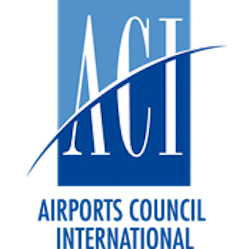New Study Launched on the Integration of Sustainable Aviation Fuels at Airports
Airports Council International (ACI) World and the Aerospace Technology Institute (ATI) have launched a first-of-its-kind study on sustainable aviation fuels (SAF) to support the decarbonization of the industry and contribute to building a viable future for aviation and communities worldwide.
The Integration of Sustainable Aviation Fuels into the Air Transport System publication provides an overview of the infrastructure and operational requirements of introducing sustainable hydrocarbon fuels at airports. It addresses the practical challenges and solutions to deploy SAF, from one-off flights to fully integrated supply chains.
Facilitated by the Air Transport Action Group (ATAG), the wider aviation industry has committed to net zero CO2 emissions by 2050. SAF are a critical pillar to achieving this ambitious goal made by the aviation industry as well as many governments.
Today, however, the global production of SAF is dominated by two producers, with a few others producing SAF batches on demand. Further work is required to make SAF fully compatible with existing distribution systems, storage infrastructure, and aircraft. The future SAF supply chain needs logistics and blending facilities that can scale to the hundreds of millions of tonnes that will be required as air traffic recovers.
The publication thus aims to reiterate the environmental benefits of SAF; inform aviation stakeholders about the SAF value chain and their potential roles within it; outline the infrastructure required to scale up, produce, blend, transport, and store SAF; and highlight the logistical, technical, and infrastructure challenges—as well as potential solutions—in making SAF a major contributor to reducing aviation emissions.
ACI World Director General Luis Felipe de Oliveira said: “ACI is pleased to continue its collaboration with the ATI to provide another critical study to our respected members and the wider air transport industry. SAF could provide the largest opportunity for aviation carbon emissions reductions to 2050, but for this to happen, an unprecedented scale-up and collaboration across the aviation ecosystem need to occur. The Integration of Sustainable Aviation Fuels into the Air Transport System provides recommendations for stakeholders to consider when starting or scaling up their SAF journey. Industry and governments must take action now to ensure the decarbonization of this vital sector and contribute to a viable future for many generations to come.”
“The Aerospace Technology Institute is pleased to have partnered with Airport Council International on this important work,” said Gary Elliott, chief executive of the ATI. “SAF is critical to the future aerospace sector and our joint study helps us to understand the production, distribution, infrastructure and technology challenges ahead and how we can start to address them.”
The publication is based on an extensive literature review and interviews with airports, fuel suppliers, academics, and manufacturers, and contributors include ACI EUROPE among other aviation organizations. It builds on the material presented in ACI’s Sustainable Energy Sources for Aviation: An Airport Perspective, and complements the joint ACI-ATI Integration of Hydrogen Aircraft into the Air Transport System: An Airports Operations and Infrastructure Review.
